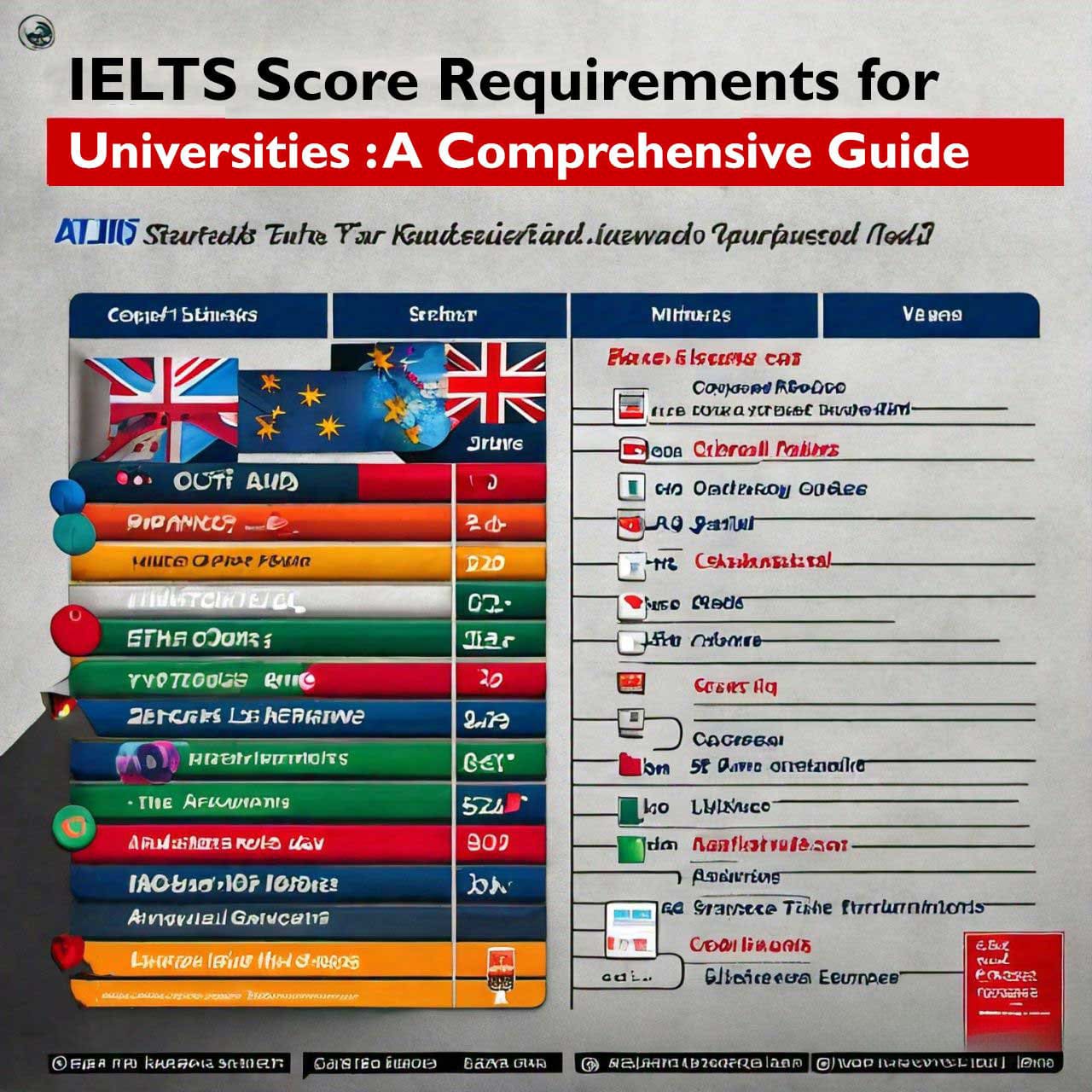The IELTS (International English Language Testing System) exam is a crucial step for non-native English speakers who wish to study at universities in English-speaking countries. Universities use IELTS scores to ensure that students have the necessary language skills to succeed in their academic programs. Understanding the IELTS score requirements for universities is essential for prospective students. In this blog post, we’ll explore the typical IELTS score requirements for various universities, how these requirements can vary, and tips for achieving your desired score.
Table of Contents
Understanding IELTS Score Requirements
What is the IELTS?
The IELTS exam assesses your proficiency in English across four key areas: Listening, Reading, Writing, and Speaking. Each section is scored on a scale of 0 to 9, and the overall score is an average of these four components.
Why Do Universities Require IELTS Scores?
Universities require IELTS scores to ensure that students can effectively communicate in English, which is essential for understanding lectures, participating in discussions, completing assignments, and integrating into the academic community.
Typical IELTS Score Requirements
General Guidelines
IELTS score requirements can vary significantly depending on the university, the level of study (undergraduate or postgraduate), and the specific program. However, here are some general guidelines:
– Undergraduate Programs: Most undergraduate programs at universities in English-speaking countries require an overall IELTS score of 6.0 to 6.5. Some competitive programs may require higher scores.
– Postgraduate Programs: Postgraduate programs typically require higher IELTS scores, often ranging from 6.5 to 7.5. Specialized or highly competitive programs may demand even higher scores.
– Specific Programs: Programs in fields such as medicine, law, or journalism often have stricter language requirements due to the nature of the coursework and the need for precise communication.
Country-Specific Requirements
United States
– Top Universities (e.g., Harvard, Stanford): Generally require an overall score of 7.0 to 8.0.
– Other Universities: Many universities accept scores between 6.0 and 7.0, depending on the program.
United Kingdom
– Top Universities (e.g., Oxford, Cambridge): Typically require scores of 7.0 to 8.0.
– Other Universities: Many institutions accept scores between 6.0 and 7.0 for undergraduate programs and 6.5 to 7.5 for postgraduate programs.
Australia
– Top Universities (e.g., University of Melbourne, Australian National University): Often require scores of 6.5 to 7.5.
– Other Universities: Most universities accept scores between 6.0 and 7.0 for undergraduate programs and 6.5 to 7.5 for postgraduate programs.
Canada
– Top Universities (e.g., University of Toronto, University of British Columbia): Generally require scores of 6.5 to 7.5.
– Other Universities: Many institutions accept scores between 6.0 and 7.0 for undergraduate programs and 6.5 to 7.5 for postgraduate programs.
New Zealand
– Top Universities (e.g., University of Auckland, University of Otago): Typically require scores of 6.5 to 7.5.
– Other Universities: Most universities accept scores between 6.0 and 7.0 for undergraduate programs and 6.5 to 7.5 for postgraduate programs.
Tips for Achieving Your Desired IELTS Score
1. Understand the Test Format
Familiarize yourself with the IELTS test format, including the types of questions you’ll encounter in each section. Understanding the structure of the test can help you manage your time more effectively.
2. Take Practice Tests
Practice tests are a great way to gauge your current level and identify areas for improvement. They also help you become accustomed to the timing and pressure of the actual exam.
3. Focus on Your Weaknesses
Identify your weak areas and dedicate extra time to improving them. Whether it’s listening, reading, writing, or speaking, targeted practice can significantly enhance your overall score.
4. Expand Your Vocabulary
A broad vocabulary can help you in all sections of the IELTS test. Read widely, listen to English media, and practice using new words in context to improve your language skills.
5. Practice Speaking and Writing
For many students, the Speaking and Writing sections are the most challenging. Practice speaking English with friends, family, or language partners. Write essays on various topics and seek feedback from teachers or peers.
6. Use Official Preparation Materials
Use official IELTS preparation materials, such as those provided by the British Council, IDP, and Cambridge. These resources are designed to closely mirror the actual test and can provide valuable insights.
7. Consider a Preparation Course
If you need additional support, consider enrolling in an IELTS preparation course. These courses offer structured learning and expert guidance to help you achieve your desired score.
Conclusion
Understanding the IELTS score requirements for universities is crucial for planning your study abroad journey. By familiarizing yourself with the typical requirements and preparing effectively, you can increase your chances of achieving a score that meets or exceeds the expectations of your chosen institutions. Remember, consistent practice and targeted preparation are key to success in the IELTS exam. Good luck!



